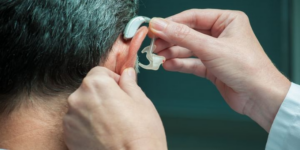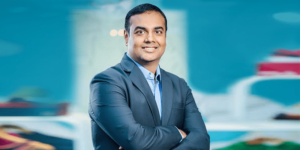, a Delhi-based digital health startup, has raised $1 million in its Series A funding. The investment was led by Anicut Angel Fund, the equity arm of Anicut Capital, with participation from 9Unicorns and other notable angel investors, including the healthcare and life science practice lead of a top tier strategy consulting firm, strategic partnerships lead at Google India, and CEO of a renowned global pharma company.
The fresh funds will be focused on strengthening the company’s position as one of the fastest-growing digital health startups in India that is helping to reduce information asymmetry and increase access to quality health information across the ecosystem. It will further allow the company to use the capital for technology, business development, product innovation and development, strategic hiring, and expansion across all healthcare hubs of India, metro cities, along with Tier-II and III cities.
The digital health startup is aiming to close a $5 million Series A round in the next three to four months.
Kunal Kishore Dhawan, Co-founder, Navia Life Care, said,
“It has been our mission to build a “connected” healthcare ecosystem, in order to facilitate improvement in standard of care and patient outcomes. We aim to address a major issue of information asymmetry, which includes lack of availability of electronic medical records for easy access by patients and doctors, or view on prescription patterns for pharma, or even smaller scale issues such as unavailability of waiting times in OPDs for patients or information about drug availability at their nearest drugstore.”
“With the new funding coming in, we have an opportunity to build a base for the next leg of our growth and we are grateful to partner with investors who share our vision,” Kunal added.
Navia Life Care was founded in 2016 by Kunal Kishore Dhawan, Gaurav Gupta, and Nupur Khandelwal, with a mission to empower the health ecosystem with innovative platforms for improving the standard of care and health outcomes across the world. The company has developed a connected care platform that facilitates the transmission of information across various stakeholders of the healthcare industry, while generating real-world evidence which is valuable to these stakeholders in increasing their understanding through actionable insights.
The platform consists of modules for patient engagement, practice management, digital EMR and smart devices, which are used by healthcare providers and patients. Navia Smart EMR uses AI-enabled suggestions, voice-to-text and handwriting recognition to help healthcare providers and doctors create digital prescriptions faster and with minimal behavioural change. Navia e-Consult helps doctors establish virtual OPDs, including video and teleconsultations, which comply with all guidelines and security measures. Navia QM helps in streamlining the patient flow and reducing OPD waiting times in crowded clinics and hospitals. Navia Connected Care also integrates with smart medical devices in order to capture real-time data and help doctors to diagnose patients in a better way.
“Healthcare in India faces several challenges including access and affordability. Technology can be transformative in delivering healthcare services. In recent times, digital health in India has significantly moved from ‘good to have’ to ‘must have’ — all because of this pandemic. We are privileged and delighted to partner with Navia Life Care as they march ahead in their mission to re-imagine the health ecosystem for Indians,” said Ashvin Chadha, Co-founder, Anicut Angel Fund.
Navia Life Care claims to have recorded exponential growth in FY21 with a 10X jump in revenue and a 30X growth in user base, over last year. It currently serves over 15,000 doctors, spread across 400+ cities and towns of India, thereby providing care to lakhs of patients. It has key partnerships with pharmaceutical companies, diagnostic providers and pharmacies, to enable the adoption of Navia Connected Care across the country. Navia plans to serve over 200,000 doctors and 200 million patients in over 10 countries by 2025.

![You are currently viewing [Funding alert] Digital health startup Navia Life Care raises $1M from Anicut Angel Fund, 9 Unicorns, others](https://blog.digitalsevaa.com/wp-content/uploads/2021/08/image_resize1560328204608.jpg)



![Read more about the article [Jobs Roundup] Want to be a part of Uniphore’s growth? These openings might be just right for you](https://blog.digitalsevaa.com/wp-content/uploads/2021/04/Imagen52t-1608011837135-300x150.jpg)

![Read more about the article [Startup Bharat] Why this boy from Bihar quit a government job to start a coworking startup](https://blog.digitalsevaa.com/wp-content/uploads/2021/04/9de83379-8521-48d6-ac73-1eb37dda86461-1619594214839-300x150.jpg)


